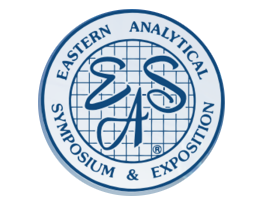One-Day Course:
Date to be announced; 8:30am – 5:00pm
Dr. Jay Meegoda, NJ Institute of Technology, Newark, NJ
COURSE DESCRIPTION
Toxic PFAS “forever chemicals” are now widespread, known contaminants in air, water, soil and food. They’re commonly detected in people’s blood everywhere, in the US and globally. PFAS chemicals show up in consumer and household products, cookware, clothing, children’s products, food packaging, firefighting foams and manufacturing wastes. These toxic pollutants can spread quickly and do not break down easily in the environment. PFAS exposures are increasingly linked to a host of health problems, from cancers to reproductive and developmental damages impacting infants, children and their families. Hence in this short course an in-depth presentation of Per- and Polyfluoroalkyl Substances or PFAS will be given. Topic includes a brief history followed by human intake of PFAS and Health Concerns, discharge of PFAS and Fate and Transport in drinking water, soils, sediments and bio-sludge. Finally, Detection and complete Destruction of PFAS is discussed.
WHO SHOULD ATTEND
Consultants, Site Remediation Professionals, Regulators, members of Local Government, Laboratory Technicians, Researchers and Students, water and wastewater treatment facility owners and operators, airport and landfill owners and operators.
TOPICS
- What are Per- and Polyfluoroalkyl Substances or PFAS?
- How were they produced?
- PFAS: Pathway for Human Exposure
- PFAS: Applications and Environmental Release
- Where can you find them or problem areas?
- PFAS: Health Concerns
- PFAS in Environmental Matrices
- Fate and Transport of PFAS
- PFAS Contamination A Crisis
- PFAS adsorption to soils, sediments and bio-sludge
- Analytical Detection Technologies for PFAS
- Pros and Cons of Detection Technologies for PFAS
- Other Emerging Detection Methods
- PFAS: Treatment Technologies and Challenges for Liquid Media
- PFAS: Separation Technologies
- PFAS: Destructive Technologies
- PFAS Destruction Technologies- In Development Phase
- PFAS Destruction Technologies- Transitioning to the Field
- Pros and Cons of PFAS Treatment Technologies
- PFAS Treatment Train
- PFAS: Treatment Technologies and Challenges for Solid Media
- Future of PFAS detection, treatment and remediation
ABOUT THE INSTRUCTOR
Jay Meegoda is a Distinguished Professor of Civil and Environmental Engineering at New Jersey Institute of Technology. He received his BS (Honors) from University of Sri Lanka and his M.S. and his Ph.D. from the University of California at Davis. He has been working as educator, consultant and researcher in engineering for over 45 years. He utilizes scientific concepts and engineering technologies in his research to provide solutions to real world problems. Dr. Meegoda has worked with state and local governments, and foreign governments to provide technical input for broad range of problems.
